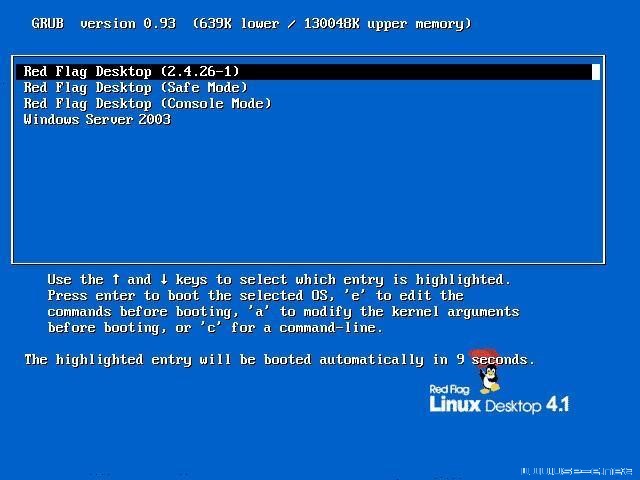PostgreSQL数据库学习手册之libpq-C库的例子程序
1.14. 例子程序Example 1-1. libpq 例子程序 1
[myphp]
/*
* testlibpq.c
*
* Test the C version of libpq, thePostgreSQLfrontend
* library.
* 测试 PostgreSQL 前端库 libpq 的 C 版本
*/
#include <stdio.h>
#include <libpq-fe.h>
void
exit_nicely(PGconn *conn)
{
PQfinish(conn);
exit(1);
}
main()
{
char *pghost,
*pgport,
*pgoptions,
*pgtty;
char *dbName;
int nFields;
int i,
j;
/* FILE *debug; */
PGconn *conn;
PGresult *res;
/*
* begin, by setting the parameters for a backend connection if the
* parameters are null, then the system will try to use reasonable
* defaults by looking up environment variables or, failing that,
* using hardwired constants
*/
pghost = NULL; /* host name of the backend server */
pgport = NULL; /* port of the backend server */
pgoptions = NULL; /* special options to start up the backend
* server */
pgtty = NULL; /* debugging tty for the backend server */
dbName = "template1";
/* make a connection to the database */
conn = PQsetdb(pghost, pgport, pgoptions, pgtty, dbName);
/*
* check to see that the backend connection was successfully made
*/
if (PQstatus(conn) == CONNECTION_BAD)
{
fprintf(stderr, "Connection to database '%s' failed.\n", dbName);
fprintf(stderr, "%s", PQerrorMessage(conn));
exit_nicely(conn);
}
/* debug = fopen("/tmp/trace.out","w"); */
/* PQtrace(conn, debug); */
/* start a transaction block */
res = PQexec(conn, "BEGIN");
if (!res || PQresultStatus(res) != PGRES_COMMAND_OK)
{
fprintf(stderr, "BEGIN command failed\n");
PQclear(res);
exit_nicely(conn);
}
/*
* should PQclear PGresult whenever it is no longer needed to avoid
* memory leaks
*/
PQclear(res);
/*
* fetch rows from the pg_database, the system catalog of
* databases
*/
res = PQexec(conn, "DECLARE mycursor CURSOR FOR SELECT * FROM pg_database");
if (!res || PQresultStatus(res) != PGRES_COMMAND_OK)
{
fprintf(stderr, "DECLARE CURSOR command failed\n");
PQclear(res);
exit_nicely(conn);
}
PQclear(res);
res = PQexec(conn, "FETCH ALL in mycursor");
if (!res || PQresultStatus(res) != PGRES_TUPLES_OK)
{
fprintf(stderr, "FETCH ALL command didn't return tuples properly\n");
PQclear(res);
exit_nicely(conn);
}
/* first, print out the attribute names */
nFields = PQnfields(res);
for (i = 0; i < nFields; i++)
printf("%-15s", PQfname(res, i));
printf("\n\n");
/* next, print out the rows */
for (i = 0; i < PQntuples(res); i++)
{
for (j = 0; j < nFields; j++)
printf("%-15s", PQgetvalue(res, i, j));
printf("\n");
}
PQclear(res);
/* close the cursor */
res = PQexec(conn, "CLOSE mycursor");
PQclear(res);
/* commit the transaction */
res = PQexec(conn, "COMMIT");
PQclear(res);
/* close the connection to the database and cleanup */
PQfinish(conn);
/* fclose(debug); */
return 0;
}
[/myphp]
Example 1-2. libpq 例子程序 2
[myphp]
/*
* testlibpq2.c
* 测试异步通知接口
*
* 运行此程序,然后从另外一个窗口的 psql 里运行 NOTIFY TBL2;
*
* 或者,如果你想好玩一点,尝试下面动作∶
* 用下面的语句填充一个数据库∶
*
* CREATE TABLE TBL1 (i int4);
*
* CREATE TABLE TBL2 (i int4);
*
* CREATE RULE r1 AS ON INSERT TO TBL1 DO
* (INSERT INTO TBL2 values (new.i); NOTIFY TBL2);
*
* 然后∶
*
* INSERT INTO TBL1 values (10);
*
*/
#include <stdio.h>
#include "libpq-fe.h"
void
exit_nicely(PGconn *conn)
{
PQfinish(conn);
exit(1);
}
main()
{
char *pghost,
*pgport,
*pgoptions,
*pgtty;
char *dbName;
int nFields;
int i,
j;
PGconn *conn;
PGresult *res;
PGnotify *notify;
/*
* begin, by setting the parameters for a backend connection if the
* parameters are null, then the system will try to use reasonable
* defaults by looking up environment variables or, failing that,
* using hardwired constants
*/
pghost = NULL; /* host name of the backend server */
pgport = NULL; /* port of the backend server */
pgoptions = NULL; /* special options to start up the backend
* server */
pgtty = NULL; /* debugging tty for the backend server */
dbName = getenv("USER"); /* change this to the name of your test
* database */
/* make a connection to the database */
conn = PQsetdb(pghost, pgport, pgoptions, pgtty, dbName);
/*
* check to see that the backend connection was successfully made
*/
if (PQstatus(conn) == CONNECTION_BAD)
{
fprintf(stderr, "Connection to database '%s' failed.\n", dbName);
fprintf(stderr, "%s", PQerrorMessage(conn));
exit_nicely(conn);
}
res = PQexec(conn, "LISTEN TBL2");
if (!res || PQresultStatus(res) != PGRES_COMMAND_OK)
{
fprintf(stderr, "LISTEN command failed\n");
PQclear(res);
exit_nicely(conn);
}
/*
* should PQclear PGresult whenever it is no longer needed to avoid
* memory leaks
*/
PQclear(res);
while (1)
{
/*
* wait a little bit between checks; waiting with select()
* would be more efficient.
*/
sleep(1);
/* collect any asynchronous backend messages */
PQconsumeInput(conn);
/* check for asynchronous notify messages */
w





